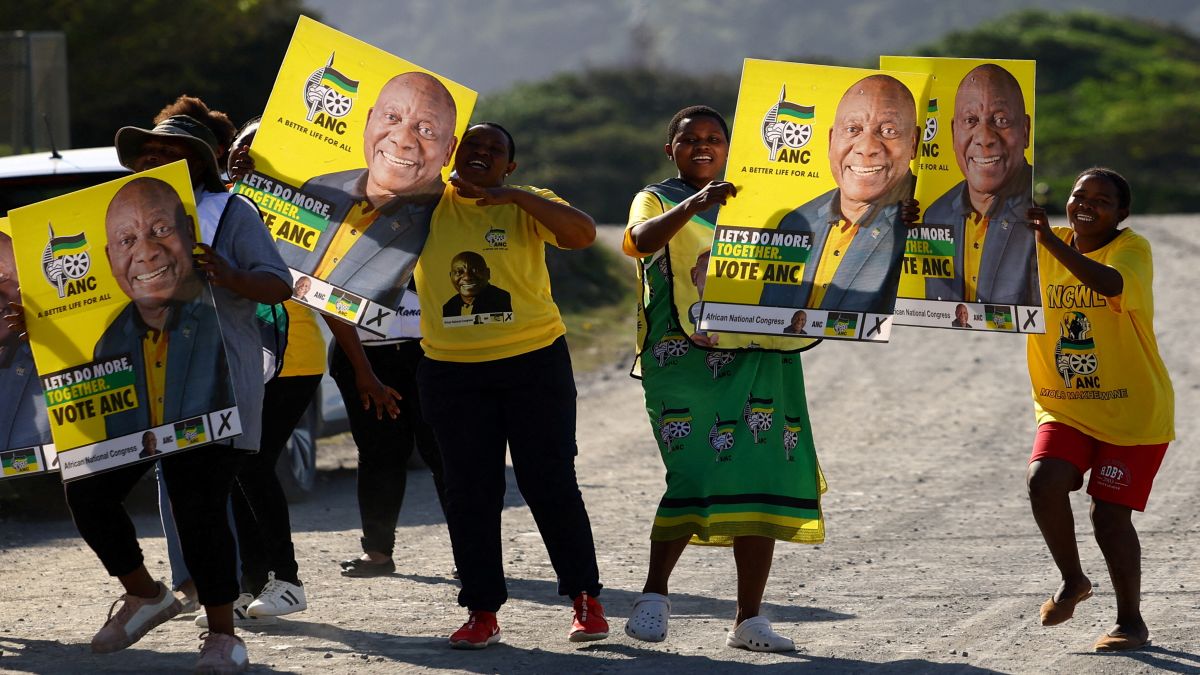South Africa’s national election is throwing up an unprecedented result, with no political party likely gaining a majority in the parliament. Early results show the African National Congress (ANC), ruling the country for 30 uninterrupted years, falling short of the majority for the first time.
Early results
Trends from the counting of votes in South Africa show the ANC polling 42-43 per cent of the votes, followed by the principal opposition Democratic Alliance (DA) 22-23 per cent, former President Jacob Zuma’s uMkhonto we Sizwe (MKP) 10 to 11 per cent and Economic Freedom Fighters (EFF) nine to 10 per cent.
South Africa’s constitution makes a party or coalition eligible for government formation only if it secures over 50 per cent of the vote share in the national election, which decides the number of seats for each party on a proportional basis.
A general routine
South Africa’s constitution says that a Parliament sitting must be convened within 14 days of the declaration of election results to elect the president to lead the government.
To date, this has been a simple process with the ANC securing a majority in every election since the new constitution was adopted in the 1990s.
A hung parliament
If the election throws a hung parliament, the parties need to stitch a coalition to reach the majority mark.
In this year’s election, the ANC is likely to fall short of the majority mark by some distance.
If the ANC gets a vote share of around 45 per cent, it can cobble up a coalition with smaller parties and form the government.
If the ANC falls below 45 per cent of votes, it may have to reach out to the DA or Economic Freedom party to form a ruling coalition — an uncertain move, which even if works out may put in place an unstable government.
An untested provision
Schedule 3 of the Constitution says that the candidate with the majority of votes wins in the presidential contest.
However, it doesn’t define what “majority” means here. The common understanding in South Africa is that the winning candidate must poll 50 per cent+1 of the votes cast. In the South African parliament, the 400-member National Assembly, this number is 201.
But does this mean that the majority mark will drop below 201 if some MPs abstain from voting? There is no clarity on this aspect.
There could be a possible way out as the constitution provides for a runoff by eliminating the votes of the least-polled candidates until one candidate gets a majority.
But this provision has never been tested in South Africa.
What if a coalition doesn’t form?
- If South African parties and MPs don’t agree to form a coalition government, fresh elections should be held after 90 days have elapsed since the first sitting of the parliament. (A former South African MP and ambassador to Ireland has written this in a column).
)